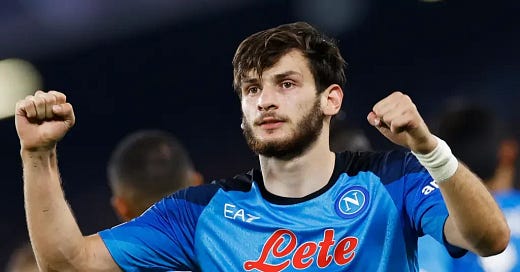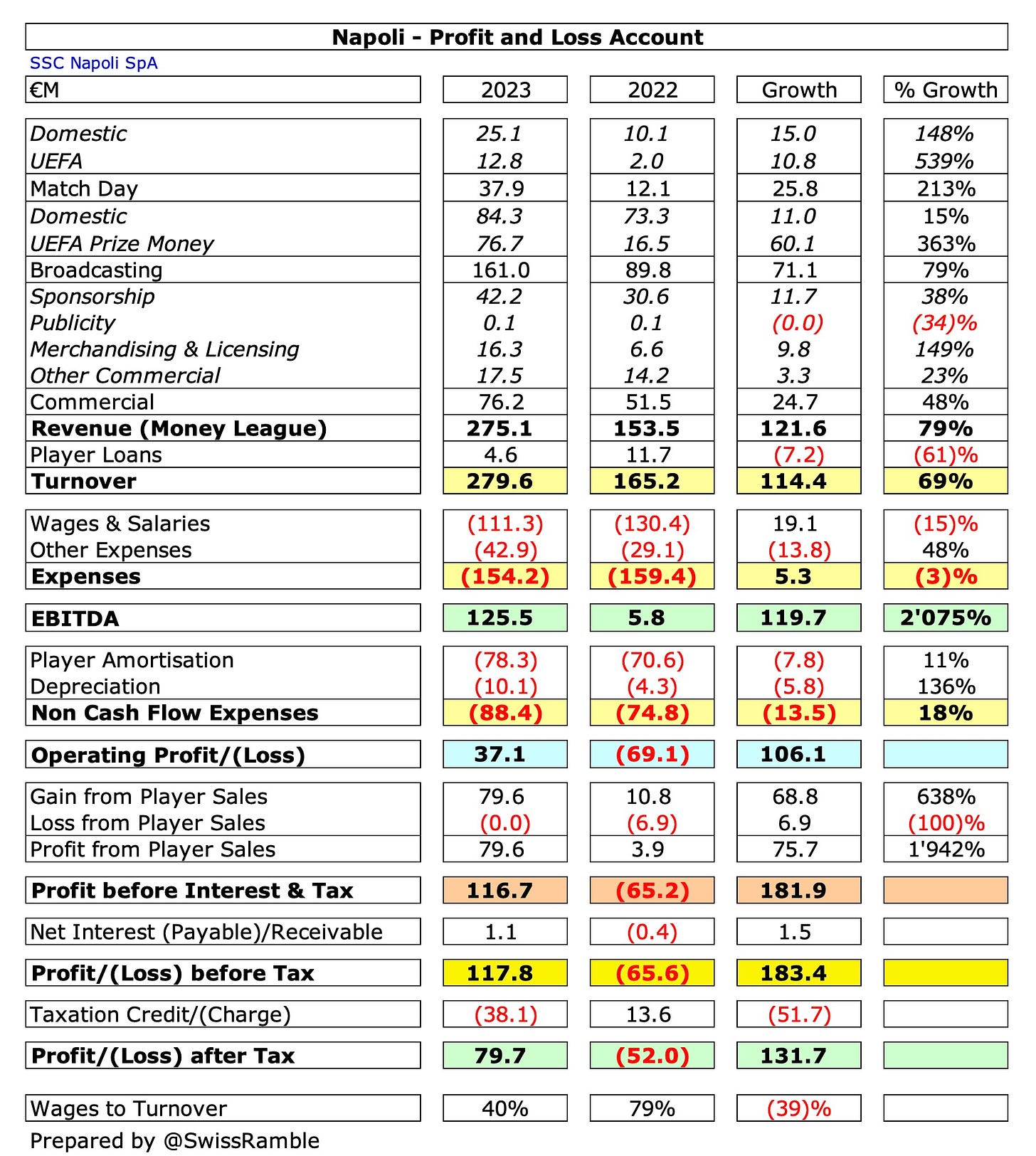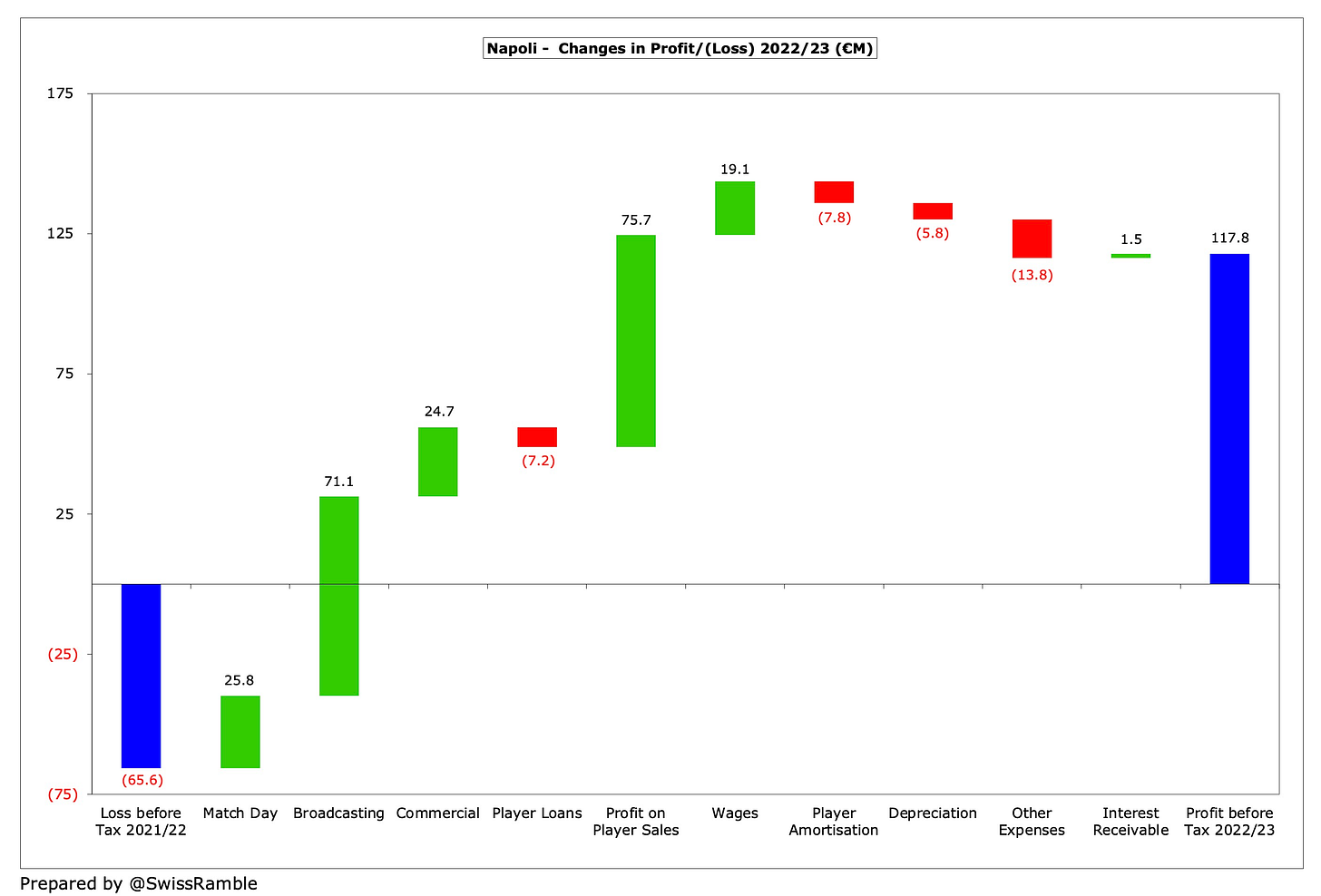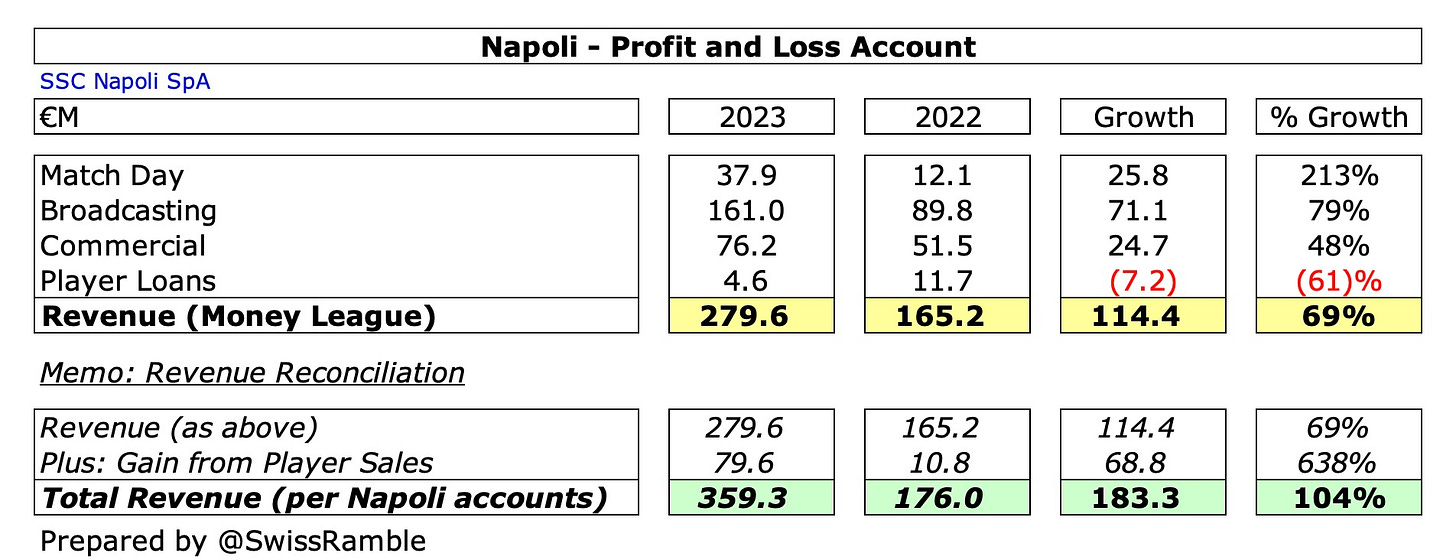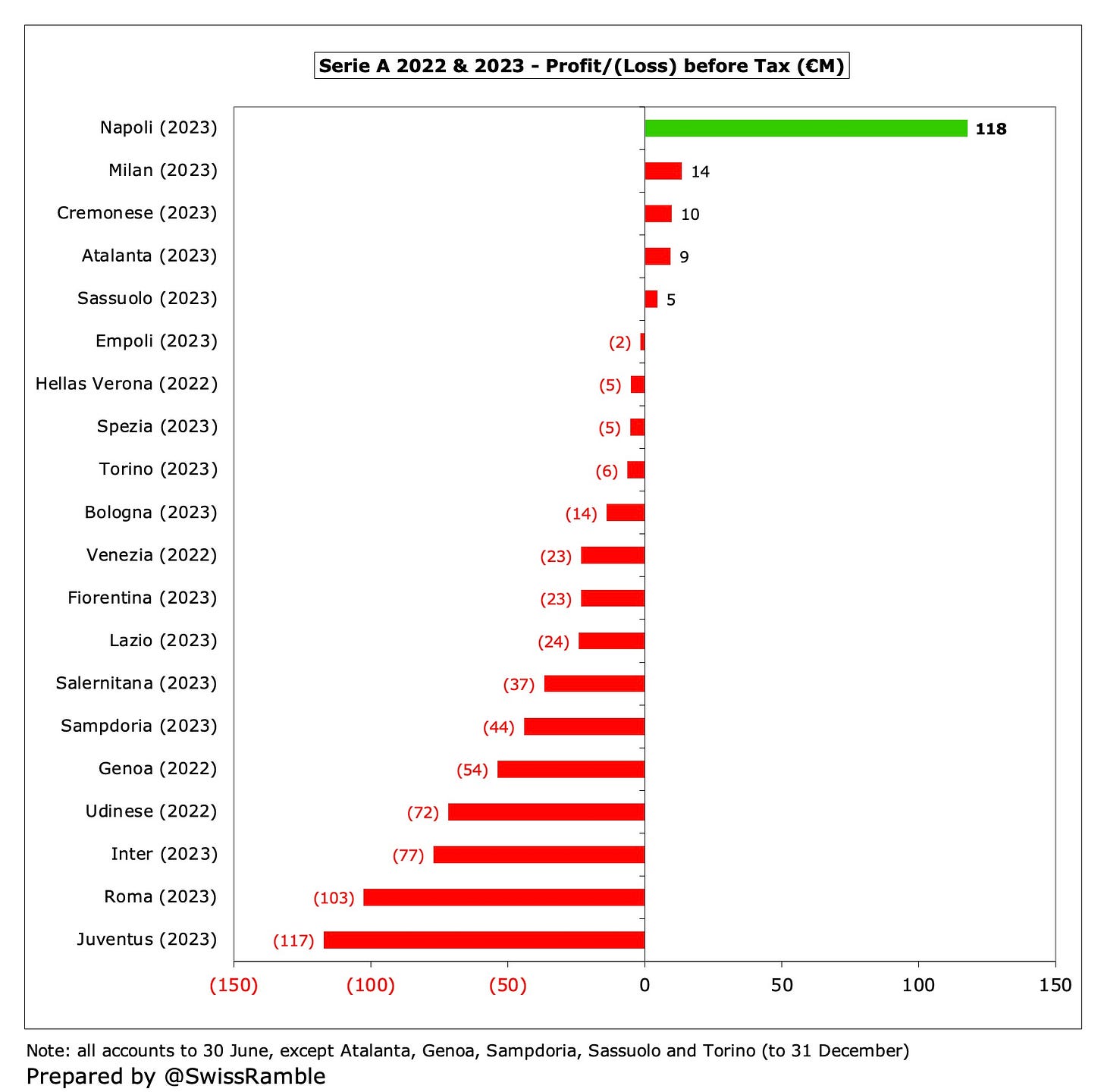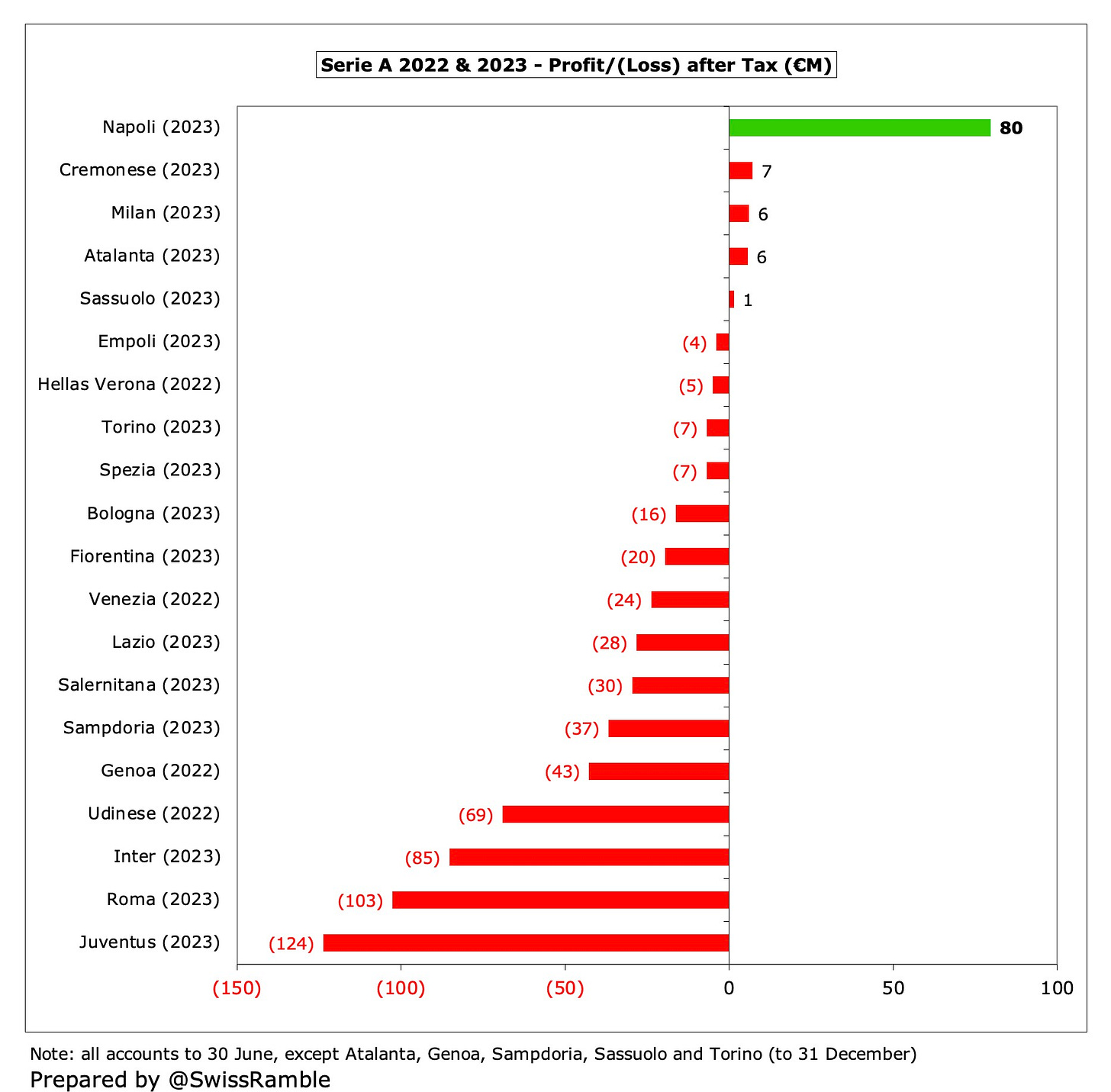Not only did Napoli win the scudetto last season, but they achieved this in a lot of style, playing some brilliant football under head coach Luciano Spalletti to seal the deal with six rounds to spare. This was only the third title in their history, over 30 years after the Maradona inspired triumph in 1990.
Give Napoli’s financial disadvantages compared to the traditional “big” Italian clubs, this was a very impressive feat, especially as this came after they had sold (or released) some of the team’s bigger stars before the season started, replacing them with relative unknowns.
This was very much in line with the modus operandi established by owner, Aurelio De Laurentiis, who had bought the club in 2004 after Napoli went bankrupt and were relegated to the third tier. They soon bounced back with two promotions in three seasons, with the Italian film producer insisting that the club follows a sustainable strategy.
There was some disappointment in 2022/23, as they were eliminated in the Champions League quarter-finals by domestic rivals Milan, who finished a hefty 20 points behind Napoli in the league, which counted as a surprise.
After his herculean efforts, Spalletti requested a year-long sabbatical at the end of the season, though he has since been appointed manager of the Italy national team. He was replaced by former Roma manager Rudi Garcia, but the Frenchman was then dismissed in November after an indifferent start. As a result, he was succeeded by veteran coach Walter Mazzarri.
Returning to happy times, let’s take a look at the impact that winning the league has had on Napoli’s finances by reviewing the 2022/23 accounts.
Profit/(Loss) 2022/23
Napoli swung from a €66m pre-tax loss to an all-time Italian record profit of €118m, a massive improvement of €184m. Revenue rose €115m (69%) from €165m to a new club high of €280m, while profit from player sales shot up from just €4m to €80m.
However, Napoli’s operating expenses hardly increased at all, as they restricted growth to only 4% (€8m), which is unusual for clubs enjoying such a successful season.
After tax, Napoli went from a €52m loss to an €80m profit, net of a €38m tax charge.
Napoli’s largest revenue increase was broadcasting, which rose €71m (79%) from €90m to €161m, mainly thanks to participation in the Champions League. There was also significant growth in the other two revenue streams, as match day more than tripled from €12m to €38m, while commercial was up €24m (48%) from €52m to €76m. In contrast, player loans dropped €7m (61%) from €12m to €5m.
As a technical aside, this international definition of Napoli’s €280m revenue is different to the one used in the club accounts, which also includes the €80m gain on player sales, giving total revenue of €359m. On this basis, total revenue has more than doubled from the previous season’s €176m.
Incredibly, given all the success on the pitch, Napoli’s wage bill actually reduced by €19m (15%) from €130m to €111m, though there were increases in the cost base elsewhere.
Player amortisation rose €7m (11%) from €71m to €78m, while depreciation more than doubled from €4m to €10m. Other expenses were up €14m (48%) from €29m to €43m.
Napoli’s €118m pre-tax profit was in a class of its own in last season’s Serie A, miles more than the next highest surplus, namely Milan €14m. This was in stark contrast to the large losses posted by the likes of Juventus €117m, Roma €123m and Inter €77m.
Not all clubs have published their accounts for the 2022/23 season, but a few of them did manage to generate small profits: Cremonese €10m, Atalanta €9m and Sassuolo €5m.
It was much the same story for net figures after tax, though Napoli’s profit was reduced to “only” €80m after a €38m tax charge, while the losses were even larger than before tax at Juventus €124m, Roma €103m and Inter €85m.
Napoli’s superlative financial results were boosted by €80m profit from player sales, up from prior year’s €4m. This was mainly driven by the sales of Kalidou Koulibaly to Chelsea (€42m gain), Fabian Ruiz to PSG €22m and Andrea Petagna to Monza €9m.
In addition, they offloaded a few players on free transfers, which obviously generated no profit, but did reduce the wage bill, including club stalwarts Lorenzo Insigne to Toronto FC and Dries Mertens to Galatasaray plus David Ospina to Al-Nassr.
Keep reading with a 7-day free trial
Subscribe to The Swiss Ramble to keep reading this post and get 7 days of free access to the full post archives.

